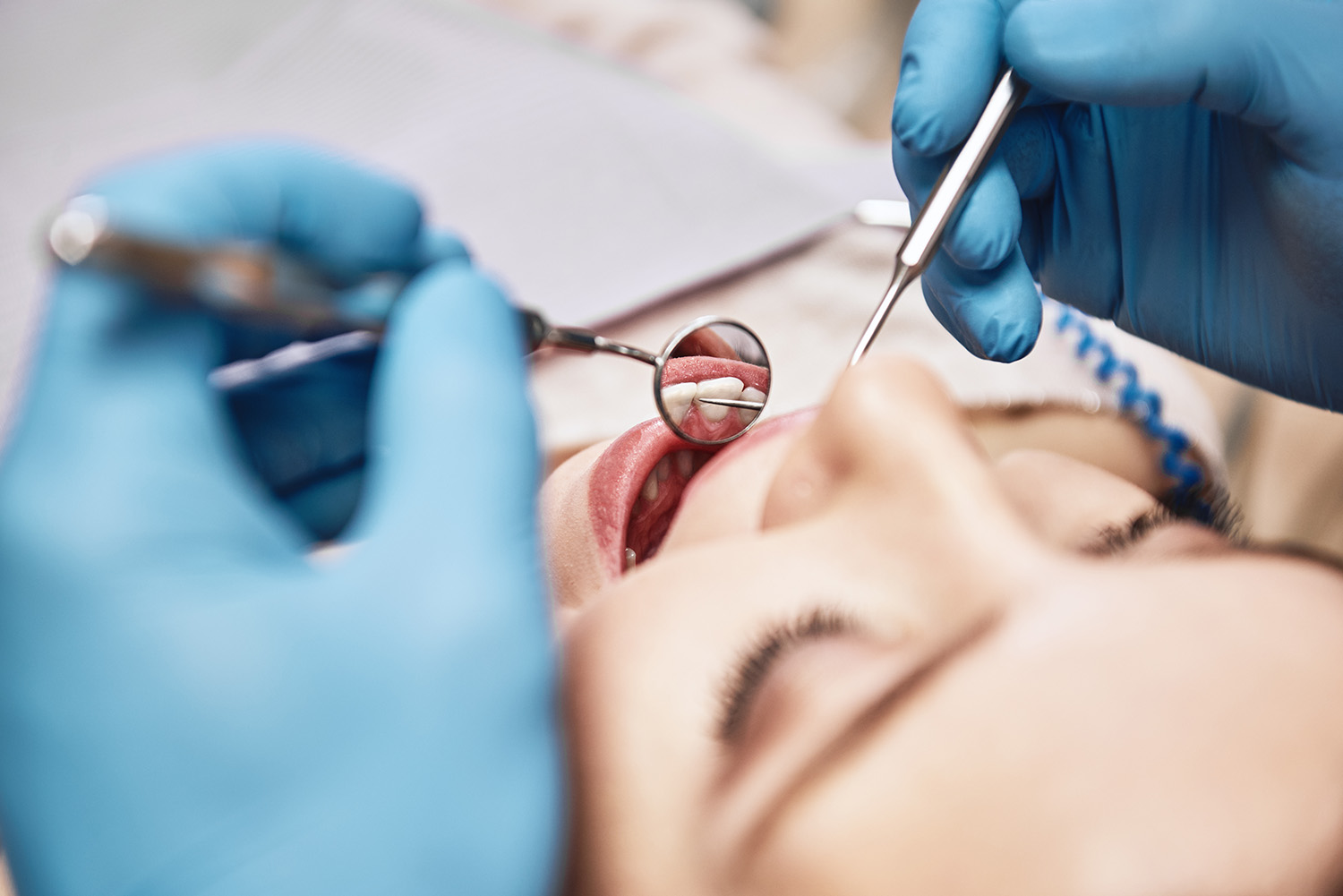Periodontal Maintenance
Maintenance visits to the periodontist can help to prevent additional dental problems in the future, such as further bone and tooth loss.

Periodontal maintenance therapy is an ongoing program designed to prevent the progression of periodontal (gum) disease in the gum tissue and bone that supports the teeth. Periodontal maintenance is usually necessary for patients who have been diagnosed with and treated for periodontal disease.
Maintenance visits to the periodontist can help to prevent additional dental problems in the future, such as further bone and tooth loss. Treating the disease in its early stages can help to save you from not only oral and overall health problems, but also money!
Why is periodontal maintenance necessary?
Gum disease is caused by the bacteria found in plaque. The toxins produced by these bacteria cause our bodies to destroy the bone that supports the teeth. If plaque is not removed, it can harden and form calculus (tartar) that can exacerbate the periodontal problem.
Even someone dedicated to good oral hygiene will be unable to completely prevent the formation of all calculus on the teeth. Calculus forms when the minerals in the saliva harden, or calcify, the plaque on the teeth. Plaque is soft and sticky, and is continually forming. It is therefore important to ensure proper, thorough brushing and flossing on a daily basis to remove the plaque before it has the chance to solidify into calculus.
Flossing and brushing will help to keep the calculus formation to a minimum, but regular maintenance is needed to professionally remove what has accumulated. During your maintenance cleaning, the hygienist will evaluate and record your periodontal pocket depths and check for hidden periodontal problems.
How often do I need a maintenance visit?
Your periodontist will recommend how often you should have a periodontal maintenance visit. The frequency will be determined by the type of periodontal disease you have, the type of periodontal treatment you have had in the past, how you have responded to those treatments, and how quickly you accumulate plaque. The most important factor, however, is how dedicated you are to good hygiene at home.

